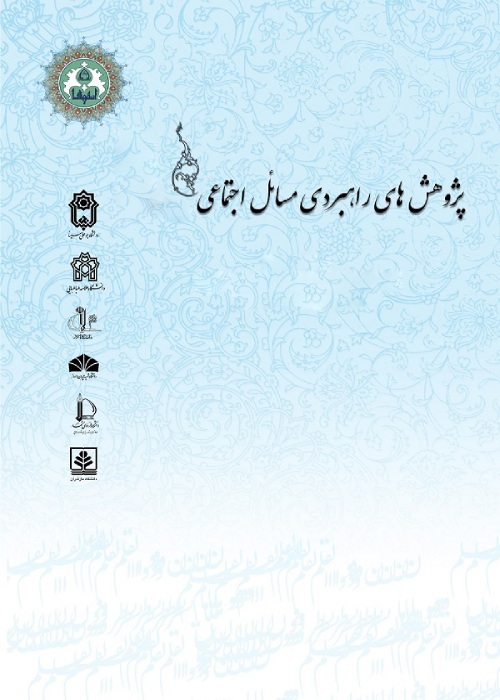Investigating the Socio-cultural Barriers to the Implementation of Citizenship Rights in Isfahan Province
Citizenship is one of the most important social issues that has had various interpretations in humanities so far. These rights are sometimes interpreted as civil and political rights, sometimes human rights, and in some cases, social rights, as various humanities scholars have attempted to interpret these rights, each with their viewpoints and theories. Each of these theories has examined different aspects of citizenship law. This paper examines theoretically and empirically some of the social and cultural barriers to the practice of citizenship law in criminal law, including clerks, prosecutors, and court judges. Theoretical themes of this research are based on a set of views on citizenship law (TC Marshall Social Theory of Citizenship), social factors (labeling, pressure, ecological and relative deprivation theories) and cultural factors (cultural latency theories, cultural dissemination, and capital).
This study is applied in terms of purpose, and is cross-sectional in terms of time. The statistical population of this study consisted of all trained officers of Isfahan police, judges working in Isfahan Public and Revolutionary Courts, and judges working in Isfahan Criminal Courts. The sampling method in this study was non-probable. The sample size is based on Cochran formula with the highest volume (estimated accuracy d = 0.05, maximal variance pq = 0.25 and confidence level 95%) so that out of 22 cities of Isfahan province, a total of 359 persons including 280 judicial officers, 45 judicial authorities, and 34 judicial authorities of the courts were selected. The research instrument for data collection was a questionnaire so that its validity was confirmed by face, structure. The validity of the concepts was checked by using Cronbach's alpha coefficient.
According to some descriptive findings, prosecutors have the most positive attitude and clerks have the least positive attitude to the exercise of citizenship rights. Meanwhile, bailiffs' attitudes toward cultural and social barriers affecting the exercise of citizenship rights are greater than those of prosecutors and court judges. In contrast to the inferential findings, the more the bailiff's awareness of citizenship law and criminal procedure law is, the more positive their attitude toward enforcing citizenship law becomes will be. In the meantime, lower-level positions have a more positive view of citizenship enforcement. As prosecutors become older, their attitude toward the exercise of citizenship rights becomes more negative.The results of the correlation test of the research hypotheses show that with the increase of social barriers in abductors, the rate of enforcement of citizenship decreases and among the dimensions of social barriers. That is, the more the attitudes towards security-oriented approach and the perpetrators are, the more negative perpetrators’ attitude toward the implementation of citizenship rights will be. However, the existence of political and social considerations does not have an effect on the officers’ attitude to the exercise of citizenship rights. As barriers to culture increase, the enforcement of citizenship rights will decrease. Among the dimensions of these barriers, the greater the lack of cultural capital in the customs and the increasing imitation and disregard for their infrastructure leads to their negative attitudes toward the exercise of citizenship rights. In the meantime, the cultural delay does not affect the officers’ attitude to the exercise of citizenship rights. Therefore, the social and cultural barriers of the traders harm their attitude to the exercise of citizenship rights. These barriers to the attitude of judges and prosecutors to the exercise of citizenship rights are not significant.The reasons for the impact of social and cultural barriers on civil servants can be traced due to the complexity, multiplicity, and diversity of job duties, along with the many innovations of the Code of Criminal Procedure in the field of civil law to the duties of a civil servant.
- حق عضویت دریافتی صرف حمایت از نشریات عضو و نگهداری، تکمیل و توسعه مگیران میشود.
- پرداخت حق اشتراک و دانلود مقالات اجازه بازنشر آن در سایر رسانههای چاپی و دیجیتال را به کاربر نمیدهد.



